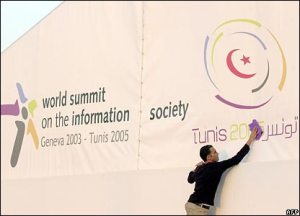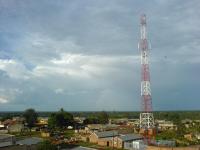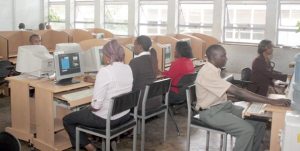Kato Mivule | November 24, 2009
It is interesting that many African nations are investing in Information Technology with hopes of inviting foreign investors from Europe and the United States to outsource more jobs to Africa in hopes of taking advantage of cheaper labor in Africa. However, this strategy though attractive seems to be short sighted and non proactive.
African Nations will still have to compete with giants like China and India who with larger educated populations than the totals of what Africa can provide, way out compete African Nations when it comes to outsourced jobs from the West. The Chinese and Indians are much more able to provide far cheaper labor than what African Nations can amass.
I do not think that ‘Call Centers’ are the future of the I.T Industry in Africa. Rather African Nations might as well capitalize on the regional local African Market and replicate the success that the Telecom companies have had…
International IT forum kicks off in Tunisia
UNIS, Nov. 24 (Xinhua) — Tunisia, eager to be an outsourcing services hub for foreign investors, hold an international gathering on information technology (IT) to boost growth, the country’s telecommunication ministry said Tuesday.Tunisian government organizes the fourth edition of the IT meeting under the motto “IT Innovation as a Tool for Strengthening Competitiveness and Growth,” with the aim to promote investment and partnership, stimulate growth and develop knowledge economy, with special attention to the Mediterranean area, Africa and developing countries, according to the ministry.
About 1,500 participants from 67 countries, international IT organizations and Tunisian firms will participate in the two-day meeting.
Delegations are expected to attend an exhibition of technological solutions, computer applications and telecommunications for export, the ministry said.
The country’s sales abroad of information technology has an annual average growth of 22 percent with value of 640 millions U.S. dollars, up from 198 million dollars in 2003, official figures showed.
Tunisia wants to lure more foreign flows in this sector to create enough jobs for the increasing number of university graduates and trim unemployment, officially at 14 percent.
The value of foreign investment in the business is set at 3 billion dollars during the 2007 to 2011 period versus just 338.5 million dollars over the 1992 to 1996 period.
The fast-growing information technology is a priority business in the North African country. It accounts for 20.4 percent of its gross domestic product and expects to raise the figure to 27.5 percent in 2011.



